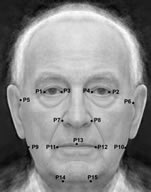At the World Congress on Psychosomatic Medicine in Torino, Italy, Carol Ryff, Professor of Psychology at the University of Wisconsin, has described how more than simply feeling happy, it is the personal approach to psychological well-being that matters.
Increasingly, researchers attend to both positive and negative aspects of mental health. Such distinctions call for clarification of whether psychological well-being and ill-being comprise opposite ends of a bipolar continuum, or are best construed as separate, independent dimensions of mental health. Biology can help resolve this query – bipolarity predicts ‘mirrored’ biological correlates (i.e. well-being and ill-being correlate similarly with biomarkers, but show opposite directional signs), whereas independence predicts ‘distinct’ biological correlates (i.e. well-being and ill-being have different biological signatures). Multiple aspects of psychological well-being (eudaimonic, hedonic) and ill-being (depression, anxiety, anger) were assessed in a sample of aging women (n = 135, mean age = 74) on whom diverse neuroendocrine (salivary cortisol, epinephrine, norepinephrine, DHEA-S) and cardiovascular factors (weight, waist-hip ratio, systolic and diastolic blood pressure, HDL cholesterol, total/HDL cholesterol, glycosylated hemoglobin) were also measured. Measures of psychological well-being and ill-being were significantly linked with numerous biomarkers, with some associations being more strongly evident for respondents aged 75+. Outcomes for seven biomarkers supported the distinct hypothesis, while findings for only two biomarkers supported the mirrored hypothesis. This research adds to the growing literature on how psychological well-being and mental maladjustment are instantiated in biology. Population-based inquiries and challenge studies constitute important future directions.
Prof. Carol Ryff also illustrated the findings of an Italian group headed by Professor Fava to point to the fact that psychological well-being can be learned and that increasing psychological well-being may improve long-term outcome of depression.
Source: Psychotherapy and Psychosomatics: Carol D. Ryff, Gayle Dienberg Love, Heather L. Urry, Daniel Muller, Melissa A. Rosenkranz, Elliot M. Friedman, Richard J. Davidson, Burton Singer. Psychological Well-Being and Ill-Being: Do They Have Distinct or Mirrored Biological Correlates? Psychother Psychosom 2006;75:85-95


